
Youth education is the key to the future: EU provides new opportunities for Azerbaijan
Education still plays a key role in personal development and determines our prospects in life. European universities have become a reference point for quality education throughout the world, and the development of education is an integral part of the EU’s cooperation with its partner countries.
In the eyes of practically any student, the EU-funded Erasmus programme, which celebrates its 30th anniversary this year, is the EU’s hallmark in the sphere of higher education.
Azerbaijan joined the EU’s education programmes back in 1994. And if earlier there were several key programmes – Erasmus Mundus, Tempus, Jean Monnet and others – in 2014 they were all united under the single programme Erasmus+.
“Following the integration of all programmes, a lot has changed. First and foremost, the geographical scope of the participants,” said Parvis Bagirov, Erasmus+ project coordinator in Azerbaijan.
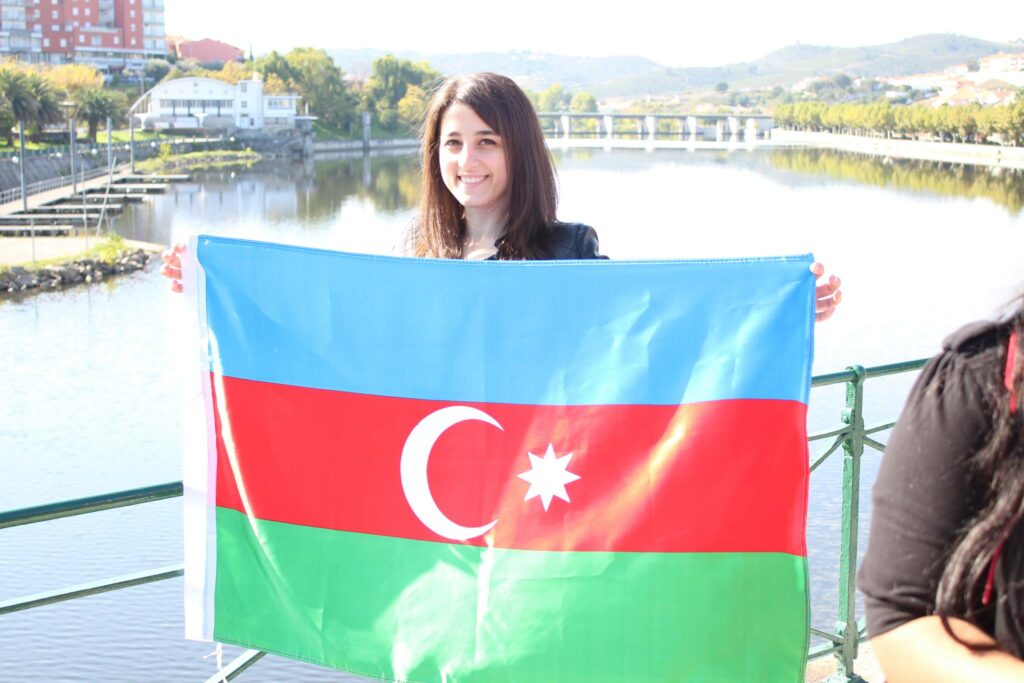
“If previously some 28 partner countries of the European Union, geographically close to European borders could participate in the Erasmus Mundus and Tempus programmes, now participation in the programme is open for practically the whole world. China, Afghanistan, Mongolia, Argentina and many other countries remote from Europe participate in the programme,” he added.
One of the key areas of the unified programme is the short-term mobility of students and staff. Simply put, this is an opportunity for students and academic staff of universities to study, teach and learn at a European partner institution for a period of 3 to 12 months. All costs are fully covered by the EU.
Each year, the European Union allocates about €20 million for the implementation of the programme in Azerbaijan, Georgia, Armenia, Ukraine, Moldova and Belarus. Overall, Erasmus+ has a budget of almost €16.5 billion for the period 2014-2020.
Under the short-term mobility scheme within Erasmus+, some 600 students from Azerbaijan go to study at European universities every year, said Parviz Bagirov.
Irana Alimova, a graduate of the Caucasus University, took part in the programme: she studied for a year at the Polytechnic Institute of Bragança, Portugal, at the Faculty of Chemical Engineering.
“It’s not just a year in a new place. This year changes you completely. Along with academic knowledge, you get to know so many interesting new people, get acquainted with a new culture and language, widen your horizons. Also, life away from the family teaches us independence. This is a huge life experience,” said Irana.
Since graduating last year, Irana has worked in the analytical laboratory of the international petrochemical company in Baku. According to her, the practical experience she received while studying in Portugal greatly facilitates her task in the workplace today.
An Erasmus Mundus Joint Master Degree is another component of Erasmus+, which supports master studies abroad for up to 2 years, allowing a student to change two, three, and even four European universities.
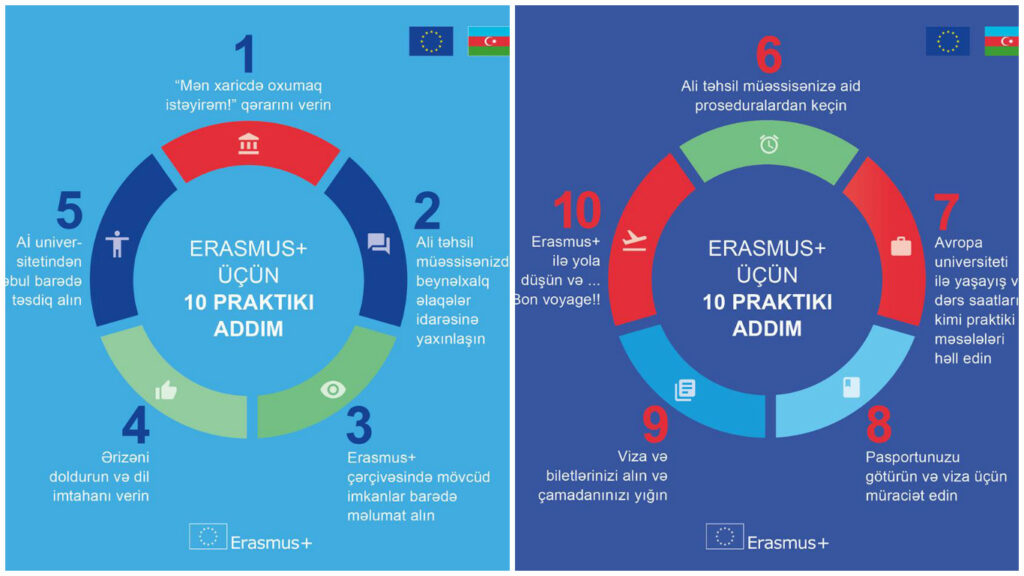
“The advantage of such education is that a graduate of the programme holds several diplomas from leading European universities,” said Parviz Bagirov.
Study programmes of partner universities are so harmonised that a smooth transition from one university to another is ensured without any gaps in the process of mastering one discipline. Participation in this programme is possible in more than 100 disciplines.
“The competition under this mobility programme is fierce, since the applications are submitted from all over the world. A large number of applications is also submitted by Azerbaijani candidates, but few are selected – 2-3 people per year,” said Parviz Bagirov.
The third major component of Erasmus+ covers Capacity-building projects in the field of higher education (a successor of the Tempus programme). This supports the modernisation of higher education and promotes inter-university cooperation between EU and partner countries’ educational institutions. Currently, six capacity-building projects are being implemented in Azerbaijan.
Irada Amiroslanova, a French language teacher at Baku State University (BSU), was a participant of one of the first Tempus projects in Azerbaijan in 1995-1999, which aimed at establishing cooperation between Azerbaijani and French universities and introducing the European higher education system to Azerbaijani counterparts.
“It was a time when high technologies did not exist, and Azerbaijan adhered to the Soviet education system. For us it was the first experience of getting to know Europe, its education system,” recalled Irada Amiroslanova, who still works at BSU.
According to her, the project broadened the horizons of participants: “It was an excellent practice of the French language, acquaintance with a new culture. We learned so much about new approaches and techniques in higher education. At that time, all this was a novelty for us.”
The EU and Azerbaijan also work hand in hand on a bilateral level to support the modernisation of the national education system. The cooperation is based on the State Programme for Education adopted in December 2015.
For the period 2016-2020, education was identified as one of the priority areas of bilateral cooperation between Baku and Brussels, with a special focus on the restoration of the vocational education and training (VET) system in the country.
“We are actively working with Azerbaijan on education reforms. The EU has allocated €19 million to support the Azerbaijani government to reform its education sector, in particular, vocational education and training,” said the Head of the EU Delegation to Azerbaijan, Ambassador Malena Mard.
A major two-year Twinning project, which aims at increasing professional competencies of the Ministry of Education and universities in Azerbaijan in the implementation of the principles of the European Higher Education Area, will come to an end in September this year. The project, funded by the European Union with a budget of €1.3 million, is carried out in partnership with the Estonian Higher Education Quality Agency and the Finnish Education Evaluation Centre.
“Azerbaijan joined the Bologna process in 2005, which was followed by numerous reforms. However, the system continues to develop, and Azerbaijan needs to keep up with the reforms so that higher education in the country meets European standards. The main issue is improving the quality of education,” said project coordinator Reijo Aholainen.
Within the framework of the project, more than 550 specialists in the field of education representing Azerbaijani universities, the Ministry of Education and other beneficiaries have been trained to date. An evaluation of the project is expected in April, and the main conclusions will be drawn.
The project also aims at developing the National Qualification Framework – mechanisms for the legal and institutional regulation of employee qualifications by the labour market.
This aims to narrow the gap between the degrees and qualifications, and the needs of the national labour market, to help determine the ‘value’ of an employee according to his real professional qualifications, and to create opportunities for a continuous process of professional education (Life-long learning).
If modernisation is needed in the sphere of higher education in Azerbaijan, vocational education and training needs to be fully restored. Azerbaijan is an example of a country where the need for skilled workers is much higher than its VET system can supply. In Azerbaijan, less than 11% of school leavers enter VET institutions, while the average in developed countries is 40-60%. That is why the Ministry of Education has declared VET a medium-term priority for 2016-2020.
The EU and Azerbaijan can already show a successful result of their cooperation in the sphere of VET. The reconstruction of the Vocational Educational Centre in Ismayilli, the mountainous north-western region of the country, was finalised in 2016. Specialists in the tourism and hospitality sector are trained there. The EU allocated €2.5 million for this programme. For Zaur Ismayilov, director of the Centre, the proof of the project’s success is the fact that his graduates have no problem finding jobs.
The EU Delegation points out that in the framework of the modernisation of the VET system, the EU in December 2016 announced a tender for NGOs with the aim of modernising VET centres in the regions of Azerbaijan. The EU has allocated €6.1 million for all initiatives.
The opportunities offered by the European Union to young people in Azerbaijan are not limited to education. There are also projects aimed at uniting young people, establishing contacts with peers and like-minded people in other countries, exchanging ideas and improving language skills. Among them is the ‘Young European Ambassadors’ initiative.
Young European Ambassadors are the driving force of an open social group on Facebook. “Volunteers from the EU and the Eastern Partnership (EaP) countries are actively cooperating and exchanging knowledge and experience,” said project coordinator Sophie Vériter.
More than 100 young people from the EU Member States and EaP countries have been appointed as ‘Young European Ambassadors’.
The initiative was launched in September 2016, and more than 850 people expressed an interest. According to Sophie Veriter, applications came from all over Europe, but the largest number came from Ukraine and Azerbaijan.
“All project participants are very active. Participants from Azerbaijan share with the community a lot of news about opportunities for young people, write publications for our blog and are open to communication,” Sophie said.
“Our goal is to let Azerbaijani youth take a closer look at European culture, history and life, but it is even more important for us to share information about educational opportunities, because we consider this to be the best way to understand Europe and develop our youth,” said Nuriyya Hasanova, project activist from Baku.
In August 2016, Azerbaijan hosted the first event in the framework of this initiative – a four-day interactive course, the EuroSchool in Gabala – which was supported by the EU Delegation to Azerbaijan.
“I noticed that not all our compatriots share the positive perception of Europe. Many people think that Europe should be treated with caution,” said Samir Salimzade, a student at ADA University.
“Therefore, I decided to help Azerbaijanis understand Europeans and the European Union better,” he said.
Samir is convinced that Azerbaijan should preserve its unique culture, but also borrow the positive European experience in many aspects. He feels the opportunities that the European Union provides to young people cannot be overestimated.
Author: Elena Ostapenko
MOST READ
SEE ALSO

No, time is not on Russia‘s side
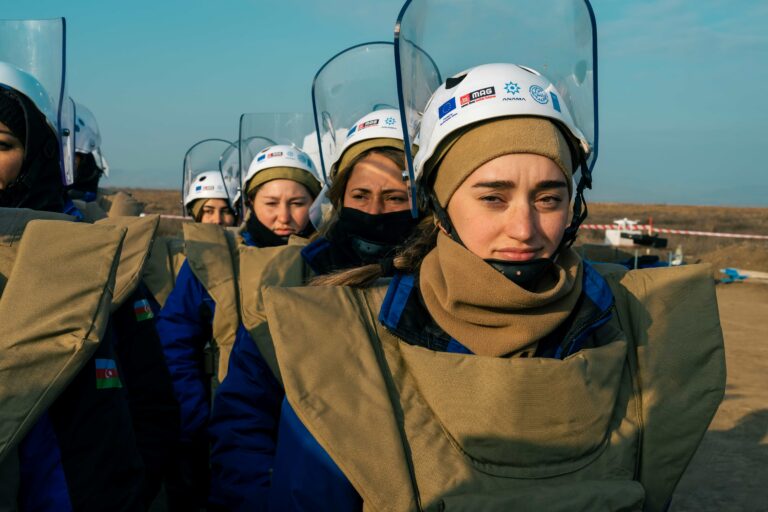
I have no regrets: the Azerbaijani women trained to clear mines
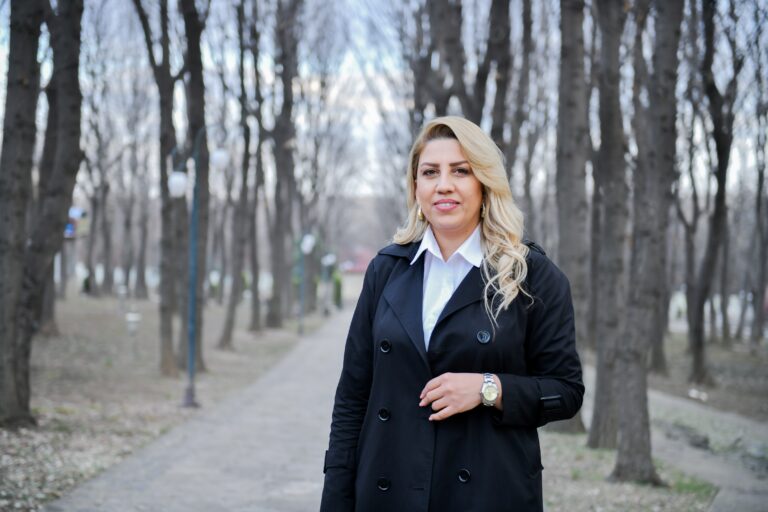
Turning a hobby into business: how Vusala Akhmadova from Tovuz helps women and children develop

Be one step ahead of a hacker: check simple cybersecurity tips!
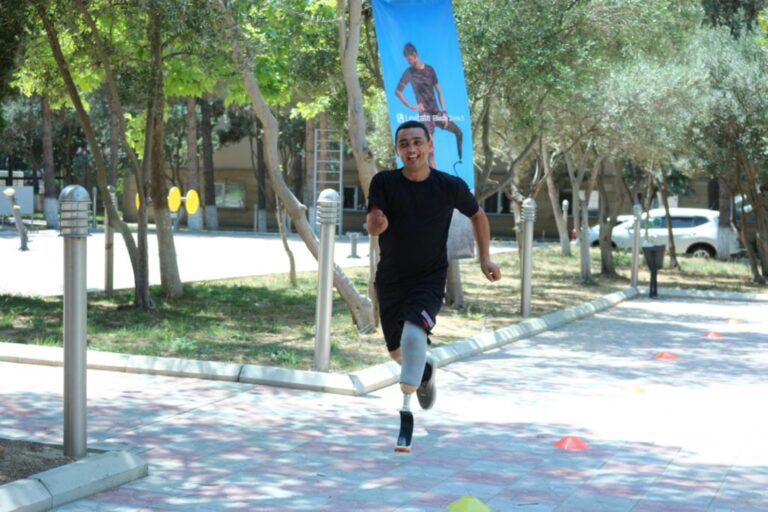
A chance for a better life: restoring justice for people with disabilities in Azerbaijan
More campaign pages:
Interested in the latest news and opportunities?
This website is managed by the EU-funded Regional Communication Programme for the Eastern Neighbourhood ('EU NEIGHBOURS east’), which complements and supports the communication of the Delegations of the European Union in the Eastern partner countries, and works under the guidance of the European Commission’s Directorate-General for Neighbourhood Policy and Enlargement Negotiations, and the European External Action Service. EU NEIGHBOURS east is implemented by a GOPA PACE-led consortium. It is part of the larger Neighbourhood Communication Programme (2020-2024) for the EU's Eastern and Southern Neighbourhood, which also includes 'EU NEIGHBOURS south’ project that runs the EU Neighbours portal.

The information on this site is subject to a Disclaimer and Protection of personal data. © European Union,







